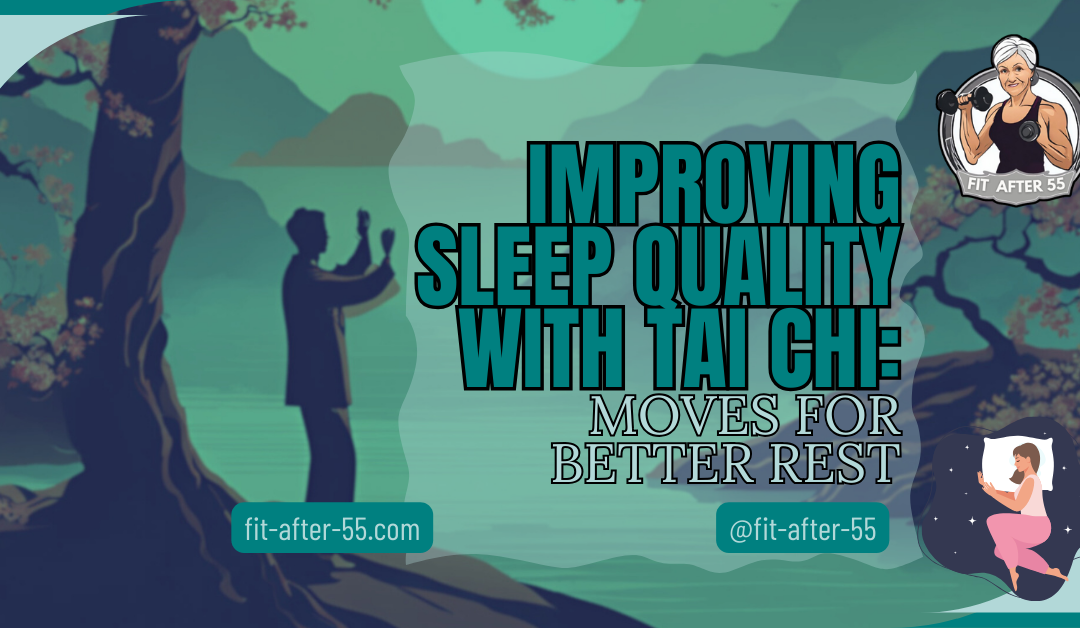Improving sleep quality with Tai Chi – it’s not just a catchy headline; it’s a personal transformation I’ve experienced firsthand. As someone who used to toss and turn for hours every night, I can attest to the profound impact Tai Chi has had on my sleep. But it’s not just about better rest; Tai Chi has also helped me become more fit, improve my balance, and even connect with a wonderful community of fellow practitioners.
Want to know how this ancient practice can change your life too? Let’s dive into the world of Tai Chi and discover how it can help you achieve a restful night’s sleep and more.
Improving Sleep Quality with Tai Chi: Gentle Moves for Better Rest
Trouble sleeping? You’re not alone. Many people struggle to get a good night’s rest. But there’s a surprising solution that might help – Tai Chi. This gentle, flowing exercise has been shown to improve sleep quality for many people.
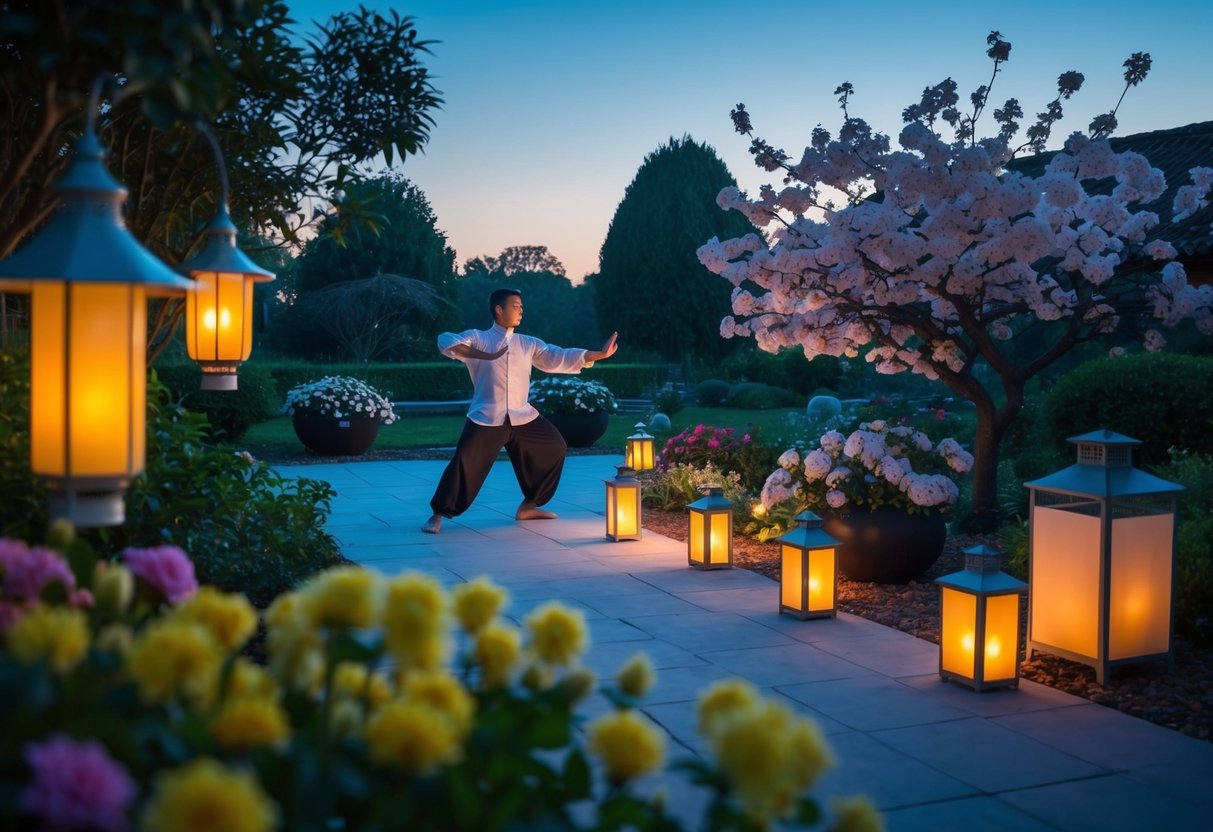
Tai Chi can improve sleep quality in both healthy adults and those with chronic health conditions. It’s a low-impact exercise that combines slow, graceful movements with deep breathing and meditation. This unique blend of physical and mental practice may be why it’s so effective for promoting better sleep.
You don’t need to be an expert to start. Even beginners can benefit from Tai Chi’s sleep-boosting effects. Regular practice can help you fall asleep faster, stay asleep longer, and wake up feeling more refreshed. It’s a natural way to enhance your sleep without relying on medication.
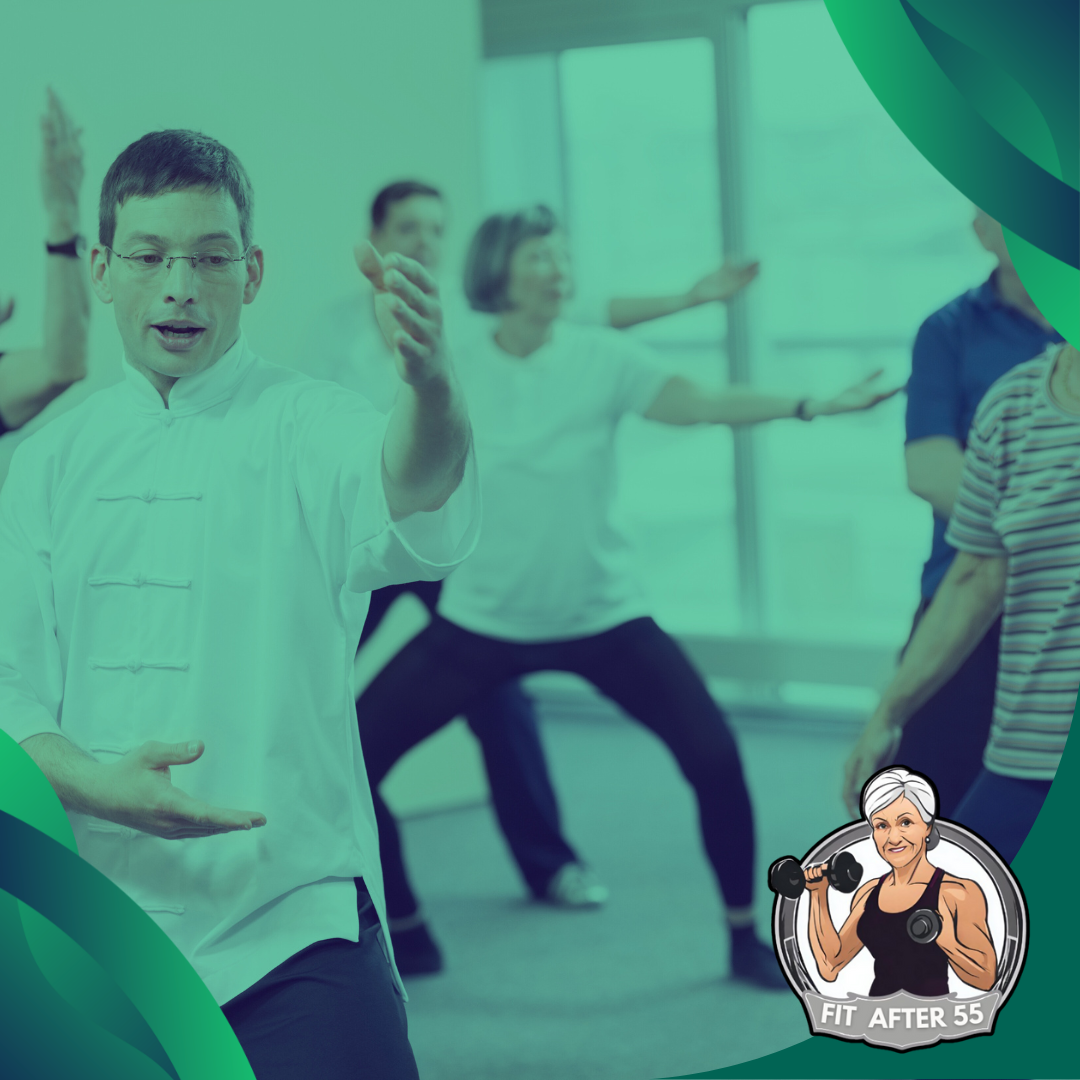
Key Takeaways
- Tai Chi is an effective way to improve sleep quality for most people
- Regular practice can lead to faster sleep onset and longer sleep duration
- Tai Chi offers benefits beyond sleep, including stress reduction and improved balance
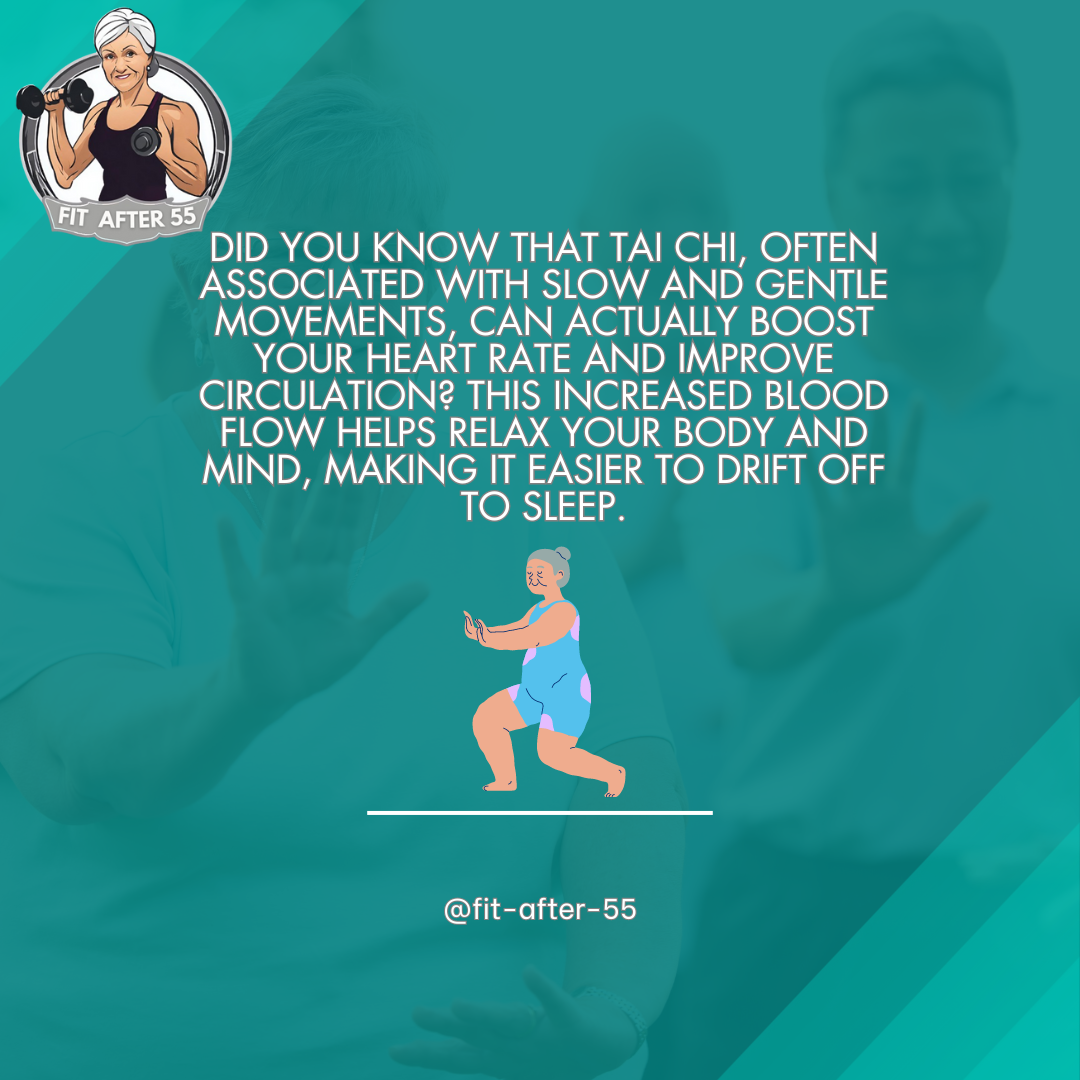
Understanding Sleep Quality and Its Importance
Sleep quality affects your daily life and long-term health. It’s about more than just how long you sleep – it’s about how well you sleep too.
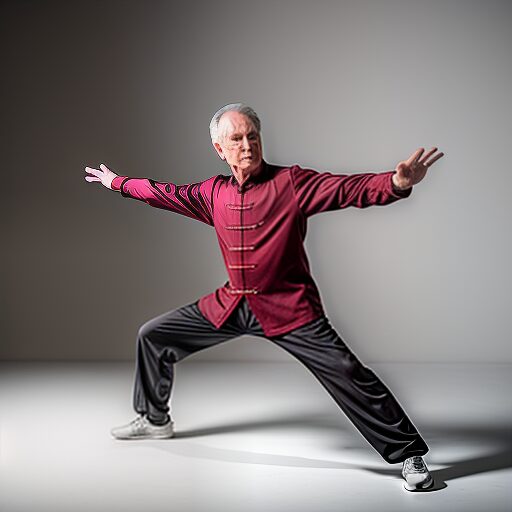
Defining Sleep Quality
Sleep quality means how good your sleep is. It’s not just about sleeping for 8 hours. Good sleep quality means you:
- Fall asleep easily within 30 minutes of going to bed
- Sleep through the night without waking up much
- Feel rested when you wake up
The Pittsburgh Sleep Quality Index is a tool doctors use to measure sleep quality. It looks at things like how long you sleep and how often you wake up.
Poor sleep quality can lead to sleep disorders. These can make you feel tired and grumpy during the day.
Components of Healthy Sleep
Healthy sleep has several key parts:
- Sleep duration: Getting enough hours of sleep each night
- Sleep continuity: Sleeping without lots of interruptions
- Timing: Having a regular sleep schedule
- Alertness during the day: Feeling awake and energetic
Your subjective sleep quality is how you feel about your own sleep. This is important because only you know how rested you feel.
Habitual sleep efficiency is another key part. This means actually sleeping for most of the time you’re in bed.
Good sleep health means all these parts work together. When they do, you’ll feel better and be healthier overall.
Overview of Tai Chi
Tai Chi is an ancient Chinese practice that combines gentle movements, breathing, and meditation. It offers many health benefits, including better sleep. Let’s explore the history and styles of this calming exercise.
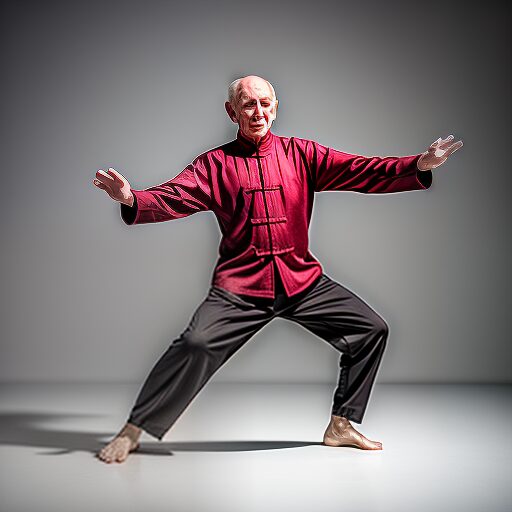
History and Principles of Tai Chi
Tai Chi Chuan began as a martial art in China over 700 years ago. It’s based on the idea of balancing yin and yang energies in your body.
The main principles of Tai Chi include:
- Slow, flowing movements
- Deep breathing
- Mental focus
- Relaxation
These elements work together to create a meditative state. This can help reduce stress and improve your overall well-being.
Tai Chi has evolved over time. Today, it’s practiced more for health than for self-defense. Many people find it helps with balance, flexibility, and strength.
Tai Chi Styles and Practices
There are several styles of Tai Chi. The most common is Yang-style Tai Chi. It’s known for its gentle, flowing moves.
Two popular forms of Yang-style Tai Chi are:
- 24-Form Yang-Style Tai Chi: A shorter routine good for beginners
- 8-Form Yang-Style Tai Chi: An even simpler version, great for quick practice
Tai Chi Chih is another style that’s gaining popularity. It’s easier to learn and focuses more on health benefits.
When you practice Tai Chi, you’ll perform a series of slow, dance-like movements. These moves have names like “White Crane Spreads Its Wings” or “Grasp the Sparrow’s Tail”.
You can learn Tai Chi in classes or through videos. It’s best to start with a teacher who can correct your form.
Tai Chi as a Tool for Enhancing Sleep Quality
Tai Chi can help you sleep better at night. This gentle exercise combines slow movements with deep breathing to calm your mind and relax your body.

Tai Chi’s Impact on Sleep Parameters
Tai Chi improves sleep quality in both healthy adults and those with chronic conditions. It can increase how long you sleep and reduce how often you wake up at night.
Studies show Tai Chi may help with:
- Falling asleep faster
- Staying asleep longer
- Feeling more rested in the morning
If you have moderate sleep complaints, Tai Chi could be especially helpful. Randomized controlled trials have found it works better than not doing anything at all.
Practicing Tai Chi regularly may lower your sleep disturbance scores. This means you might toss and turn less at night.
Mechanisms Behind Improved Sleep Through Tai Chi
Tai Chi helps you sleep better in a few ways:
- It reduces stress and anxiety, which often keep you up at night.
- The gentle movements relax your muscles.
- Deep breathing calms your mind.
Tai Chi may work even better than other exercises for improving sleep. Its mix of movement and mindfulness seems to be key.
The practice also boosts your overall health. This can lead to more restful nights and energetic days.
Scientific Evidence Supporting Tai Chi for Sleep
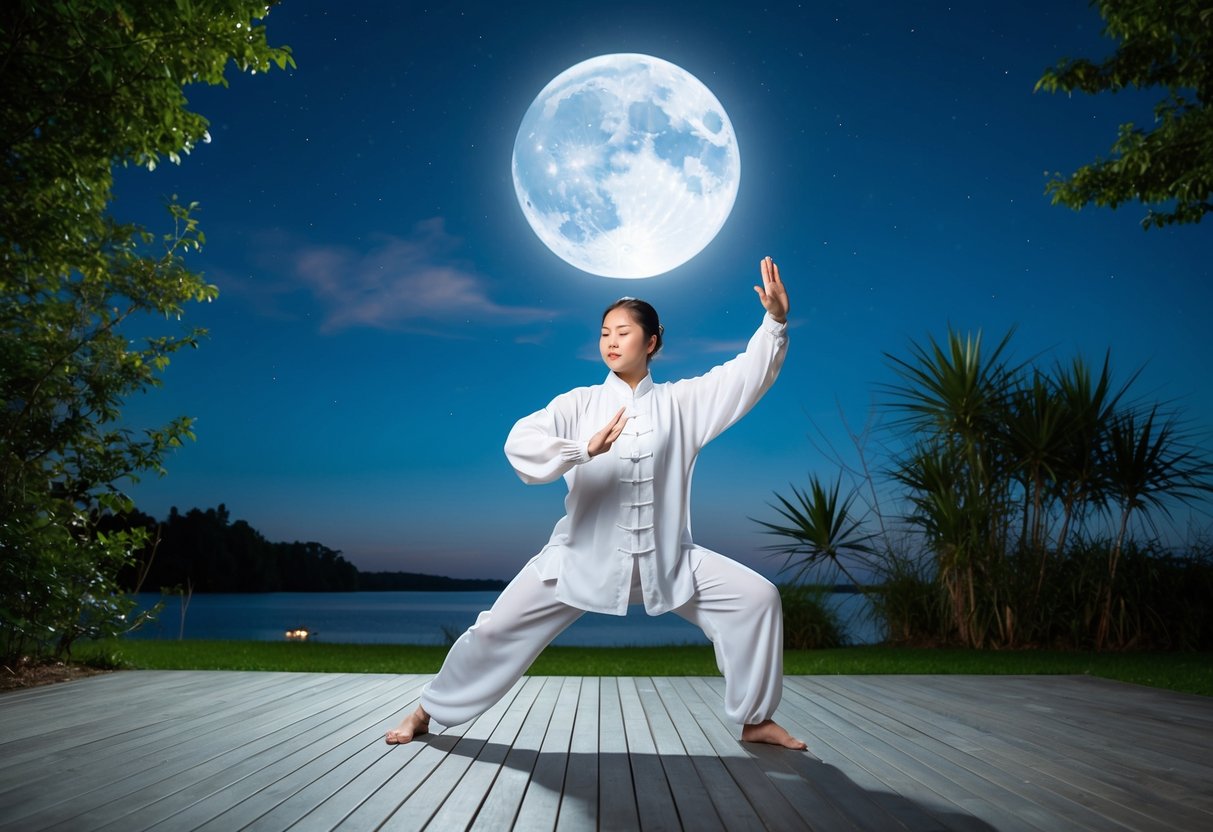
Studies show Tai Chi can help you sleep better. Research uses different methods to test how well it works. Let’s look at what scientists have found.
Randomized Controlled Trial Outcomes
Randomized controlled trials have tested Tai Chi’s effects on sleep. These studies compare people doing Tai Chi to those who don’t. They use tools like the Pittsburgh Sleep Quality Index (PSQI) to measure sleep.
Results show Tai Chi can improve your sleep quality. It helps both healthy adults and those with health issues. Some trials found it works better than other exercises for sleep.
One study looked at different Tai Chi styles. Both 24-form and 8-form Yang-style Tai Chi helped people sleep better. This means you have options when choosing a Tai Chi practice.
Meta-Analyses and Systematic Reviews
Researchers have done bigger studies that look at many trials together. These are called meta-analyses and systematic reviews. They give a broader view of how well Tai Chi works for sleep.
A meta-analysis found Tai Chi has “significant positive effects” on sleep quality. It beat doing nothing, other exercises, and health education classes.
Another review found Tai Chi gives “moderate” benefits for sleep. It helps both healthy people and those with health problems. The review noted Tai Chi might work even better for healthy people and Asians.
These big studies back up what individual trials found. They show Tai Chi is a good choice if you want to sleep better.
Tai Chi’s Benefits Beyond Sleep
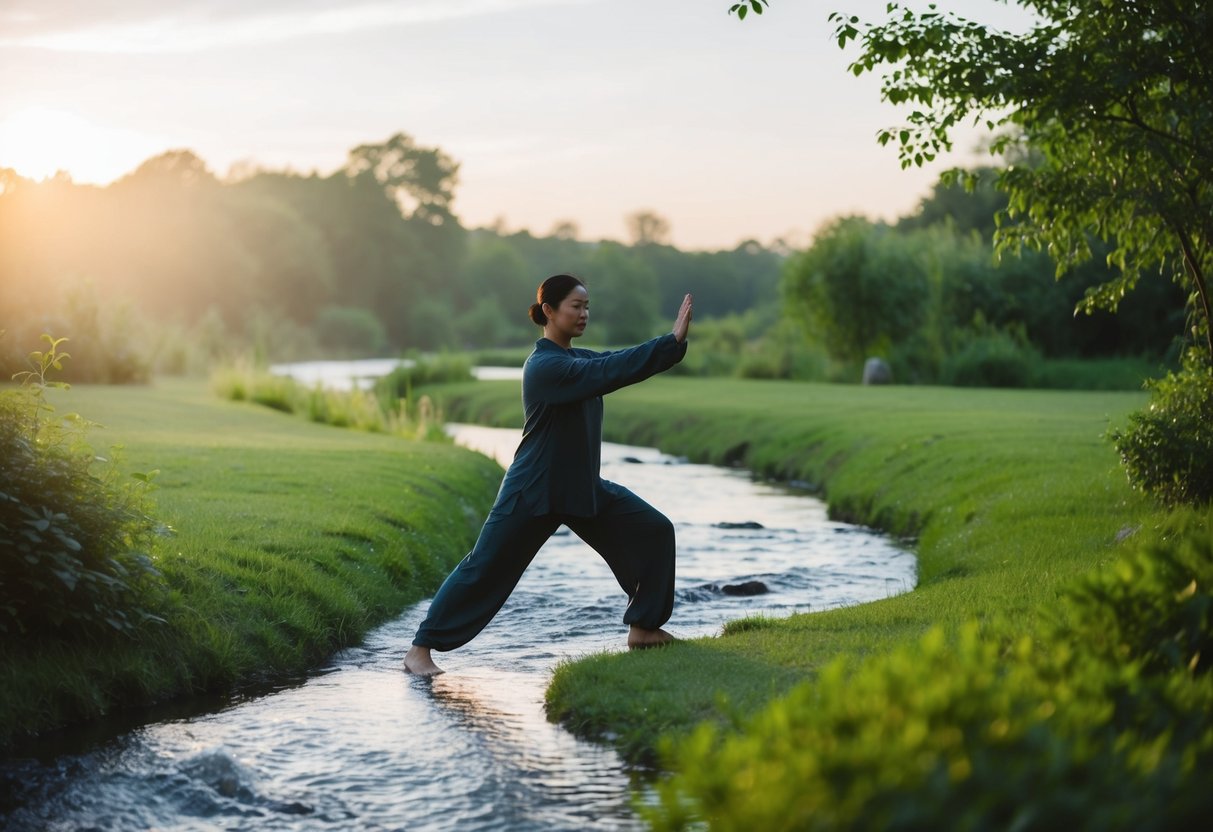
Tai Chi offers many advantages for your health and well-being. It can boost your mind, mood, and body in several ways.
Cognitive and Emotional Well-Being
Tai Chi can sharpen your mind and lift your spirits. It may improve your cognitive performance as you age. This gentle exercise can help you stay sharp and focused.
Practicing Tai Chi can also ease stress and anxiety. The slow, mindful movements help you relax and feel calm. You might notice you worry less and feel more at peace.
For older adults, Tai Chi is great for keeping your brain active. It challenges you to learn new moves and patterns. This mental workout may help prevent memory loss.
Physical Health and Chronic Conditions
Tai Chi is good for your body too. It can boost your balance and strength, which is great for preventing falls as you get older.
This exercise may help with several health issues:
- Pain relief for conditions like arthritis
- Better heart health and lower blood pressure
- Improved blood sugar control for diabetes
- Easier breathing for people with lung problems
Tai Chi is gentle on your joints, making it ideal if you have arthritis or other aches. It can help you move more easily and with less pain.
For your heart, Tai Chi can lower your blood pressure and improve your cardiovascular health. It may even help control cholesterol levels.
If you have diabetes, regular Tai Chi practice might help manage your blood sugar. It’s a fun way to stay active and healthy.
Addressing Sleep Disorders with Tai Chi

Tai Chi offers a gentle, effective way to tackle sleep problems. You can use this ancient practice to calm your mind and relax your body, leading to better rest.
Tai Chi in the Management of Insomnia
If you struggle with insomnia, Tai Chi might be your solution. Studies show that Tai Chi can improve sleep quality for many people. It works as a non-drug option to help you fall asleep faster and stay asleep longer.
Tai Chi helps by reducing stress and anxiety. These are often big factors in sleep issues. When you practice Tai Chi, you learn to quiet your thoughts and relax your muscles.
You might find Tai Chi works as well as or better than other treatments. Some people even see results similar to cognitive behavioral therapy for insomnia.
Tai Chi for Elderly and Their Specific Sleep Challenges
As you get older, good sleep can become harder to find. Tai Chi is a great fit for older adults with sleep troubles. It’s low-impact and easy on your joints.
Research suggests Tai Chi can help with common sleep complaints in the elderly. These include waking up too early or feeling tired during the day.
Tai Chi also helps with other issues that affect sleep in older adults. It can ease depression and anxiety, which often disrupt sleep patterns.
You’ll find Tai Chi improves your balance too. This can lead to fewer nighttime trips to the bathroom, a common sleep disturber for older folks.
Integrating Tai Chi into Lifestyle for Better Sleep

Tai Chi can be a powerful tool for improving your sleep. By creating a regular practice and pairing it with good sleep habits, you can boost your rest quality.
Developing a Tai Chi Routine
Start by setting aside 15-30 minutes each day for Tai Chi. Choose a time that works best for you, like early morning or before bed. Pick a quiet spot in your home or outdoors where you won’t be disturbed.
Begin with simple Tai Chi moves and gradually add more complex ones. You can learn from videos, books, or a local class. Tai Chi has been shown to improve sleep quality in many studies.
Focus on your breathing and movements. This mindfulness helps calm your mind and body. Try to practice at the same time each day to build a habit.
Combining Tai Chi with Other Sleep Hygiene Practices
Pair your Tai Chi routine with other good sleep habits. Create a relaxing bedtime ritual that includes Tai Chi. This signals to your body that it’s time to wind down.
Try these tips:
- Do Tai Chi 1-2 hours before bed
- Dim lights and avoid screens after your practice
- Take a warm bath after Tai Chi
- Use comfortable bedding and keep your room cool
Tai Chi can help reduce daytime sleepiness and improve overall sleep quality. By making it part of your nightly routine, you’re setting yourself up for better rest.
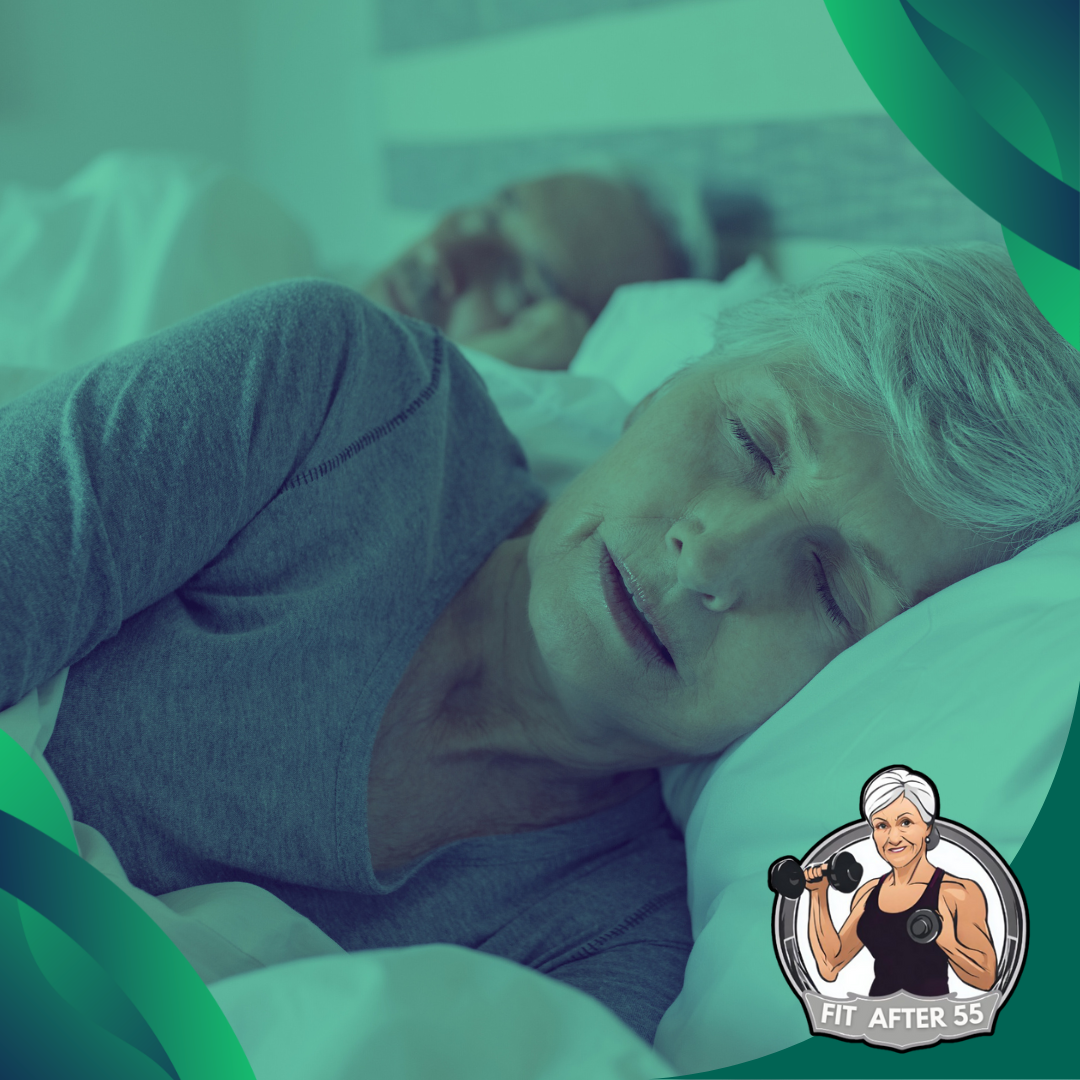
Practical Steps to Get Started with Tai Chi

Tai Chi can help you sleep better. It’s easy to begin and has many benefits. Here are some tips to start your Tai Chi journey.
Finding the Right Tai Chi Class
Look for Tai Chi classes at your local community center or gym. Many places offer beginner-friendly sessions. You can also find online classes if you prefer to learn at home.
Check the instructor’s background. A good teacher should have proper training and experience. Ask about their teaching style and class size.
Try a few different classes to see what fits you best. Some focus on health benefits, while others may be more traditional. Pick one that matches your goals and comfort level.
Don’t worry if you’re not flexible or fit. Tai Chi is for everyone, no matter your age or fitness level.
Tips for Beginners in Tai Chi
Start slow and be patient. Tai Chi takes time to learn, but that’s part of its charm. Don’t rush to perfect the moves.
Wear comfy clothes and flat shoes. This will help you move freely and stay balanced.
Focus on your breathing. Deep, slow breaths are key in Tai Chi. They help you relax and move more smoothly.
Practice regularly, even for just 10 minutes a day. Consistency is more important than long sessions.
Join a group class if you can. It’s a great way to make friends and stay motivated. The social connections can boost your mood and sleep quality.
Remember, there’s no competition in Tai Chi. Move at your own pace and enjoy the journey.
Maintaining a Tai Chi Practice for Long-Term Benefits

Keeping up a Tai Chi routine can really boost your sleep and health. You’ll need some tricks to stay on track and see how you’re doing over time.
Staying Motivated
To keep your Tai Chi practice going strong, mix things up. Try new moves or forms to keep it fresh. You could join a Tai Chi group or find a buddy to practice with.
Set small goals for yourself. Maybe aim to practice 3 times a week or master a new form each month. Celebrate when you hit these goals!
Remember why you started. Did you want better sleep? More energy? Keep those reasons in mind when you practice.
Make Tai Chi fit your life. If mornings are busy, try an evening session. Even 10 minutes a day can help.
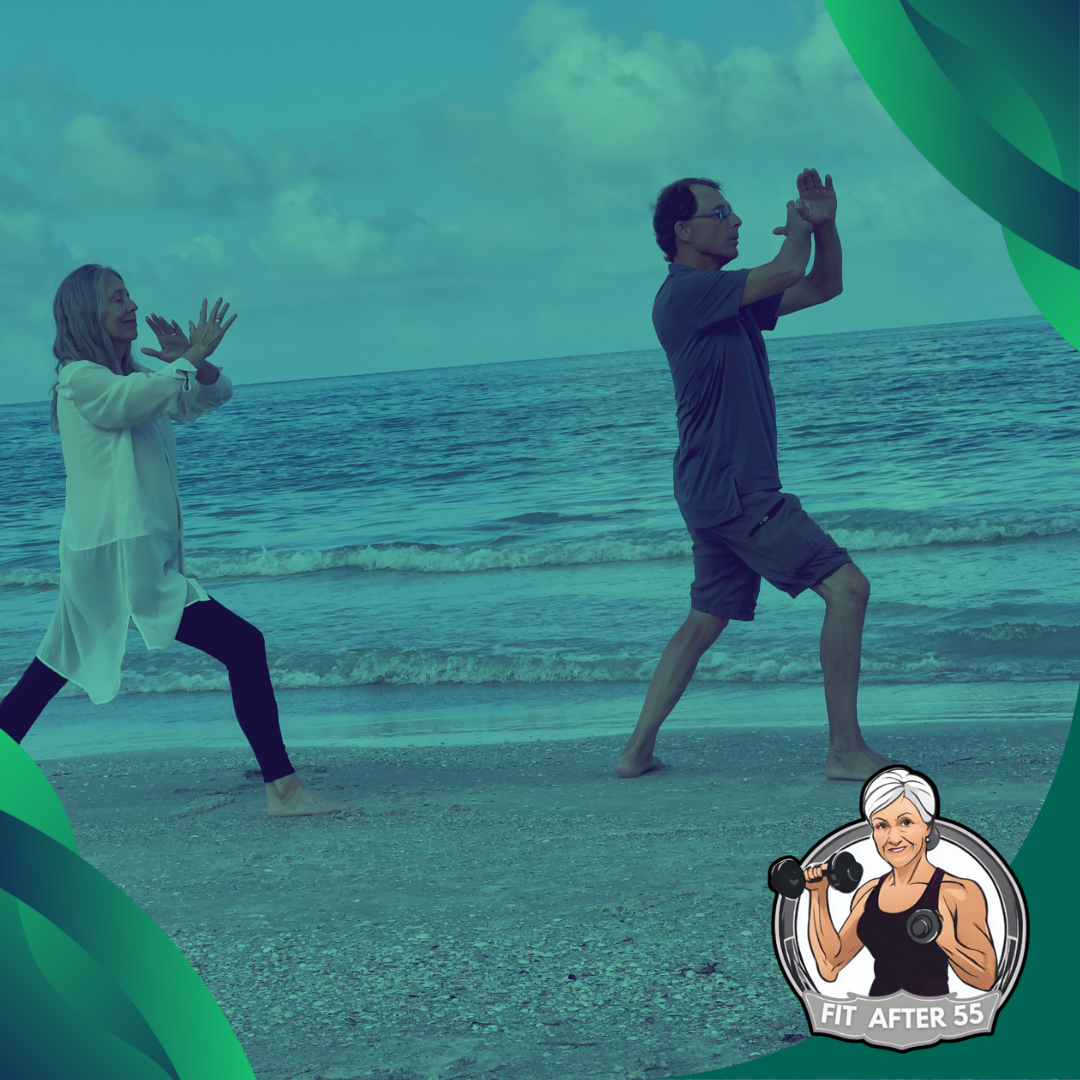
Tracking Progress and Adjustments Over Time
Keep a Tai Chi journal. Write down how you feel after each session. Note any changes in your sleep or mood.
Use a sleep tracker to see if your rest improves. Many phones or watches can do this now.
Check in with your body. Are moves getting easier? Can you stand longer? These are signs you’re getting stronger.
Be patient. Some benefits take time to show up. But small wins add up!
Talk to your doctor about your progress. They might suggest tweaks to your routine.
If something isn’t working, it’s okay to change it. Maybe you need a different Tai Chi style or practice time.
Improving Sleep Quality with Tai Chi: My Final Say
Tai Chi is more than just a gentle exercise; it’s a holistic approach to wellness that has profound benefits for both your physical and mental health. As we’ve explored in this article, Tai Chi’s unique combination of slow, flowing movements, deep breathing, and meditation can significantly improve sleep quality.

Beyond its sleep-enhancing properties, Tai Chi offers a host of other advantages, including increased fitness, improved balance, and reduced stress. By incorporating Tai Chi into your daily routine, you can experience a transformative shift in your overall well-being.
Personally, I’ve found that Tai Chi has been an invaluable tool in my journey to better sleep and overall health. Not only has it helped me fall asleep faster and sleep more soundly, but it has also given me a sense of calm and balance that I hadn’t experienced before.
If you’re struggling with sleep or looking for a way to improve your overall health, I highly recommend giving Tai Chi a try. It’s a gentle and accessible practice that can have a profound impact on your life.
Thank you for reading, and I wish you all the best in your quest for a restful night’s sleep.
Frequently Asked Questions

Tai chi can improve sleep in several ways. It helps relax the body and mind before bed. The gentle movements and breathing exercises reduce stress and promote calmness.
How can practicing tai chi before bed influence sleep quality?
Doing tai chi before bed can help you fall asleep faster. The slow, flowing movements relax your muscles. The focus on breathing calms your mind. This puts you in a restful state that makes it easier to drift off.
What are the relaxation benefits of tai chi for better sleep?
Tai chi lowers stress hormones like cortisol. It also boosts feel-good chemicals in your brain. This combo helps your body and mind unwind. The meditative aspect of tai chi quiets racing thoughts that can keep you up at night.
Can tai chi help with sleep disorders like insomnia?
Tai chi can improve sleep quality for people with insomnia. It helps you fall asleep faster and stay asleep longer. The relaxation effects can ease anxiety that often comes with sleep disorders.
How does tai chi compare to other forms of exercise in terms of improving sleep?
Tai chi may be more effective than other exercises for sleep. It combines physical activity with mindfulness. This dual approach tackles both physical and mental barriers to good sleep.
How long should I practice tai chi for optimal sleep benefits?
You can see benefits with just 20-30 minutes of tai chi per day. Consistency is key. Try to practice at least 3-4 times a week. You may notice improvements in your sleep within a few weeks of regular practice.
Is there a specific type of tai chi recommended for sleep enhancement?
Yang style tai chi, especially 24-form and 8-form, shows good results for sleep. These forms are gentle and easy to learn.
They focus on slow, flowing movements that are great for relaxation before bed.
Beyond Sleep: Enhance Your Fitness & Find Support with Tai Chi
Ready to experience the full benefits of Tai Chi? Visit our website for in-depth articles, product reviews, and more! Join our supportive Facebook community to connect with fellow Tai Chi enthusiasts of all ages and fitness levels. Let’s move better, sleep better, and live better together!

